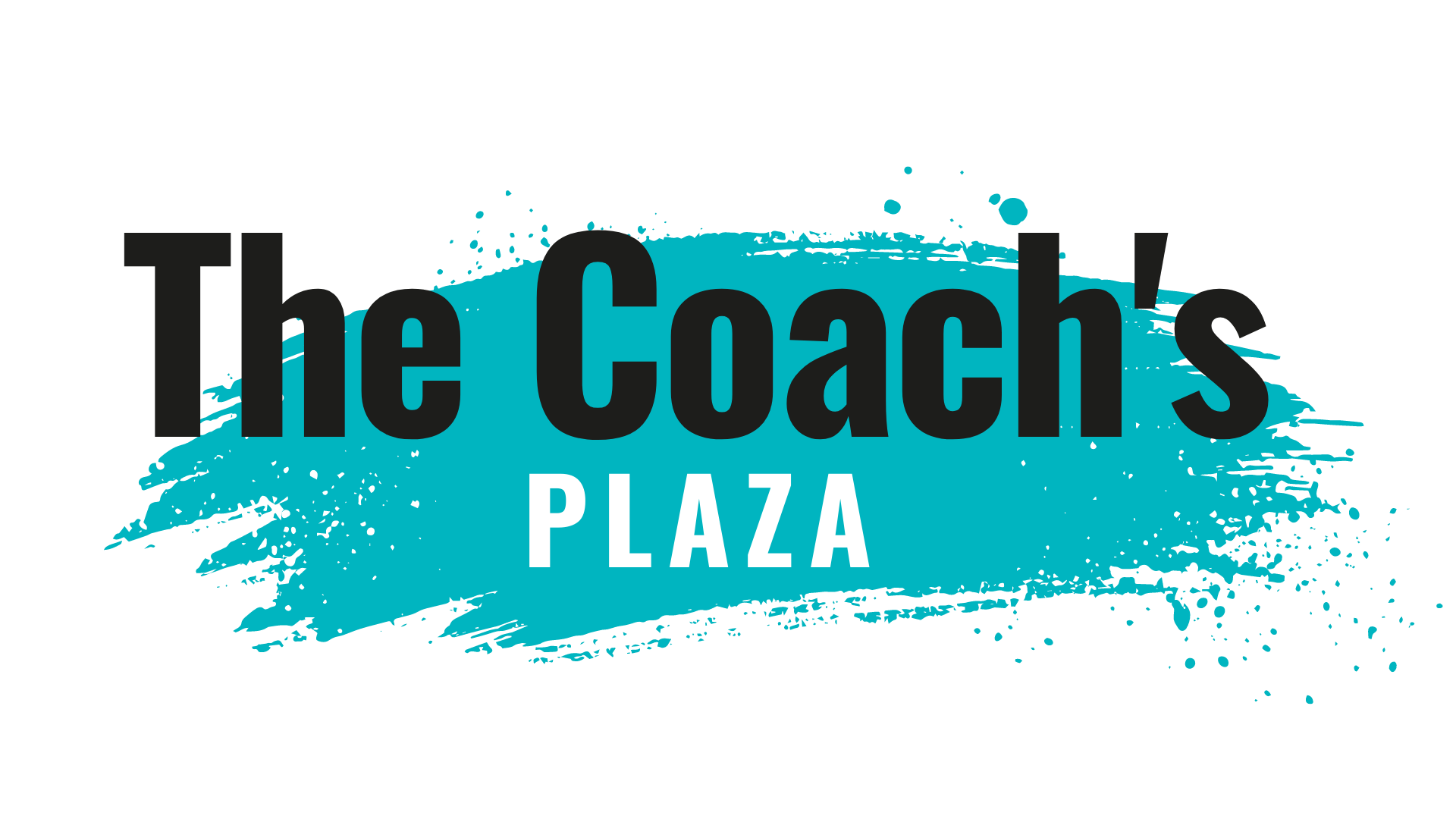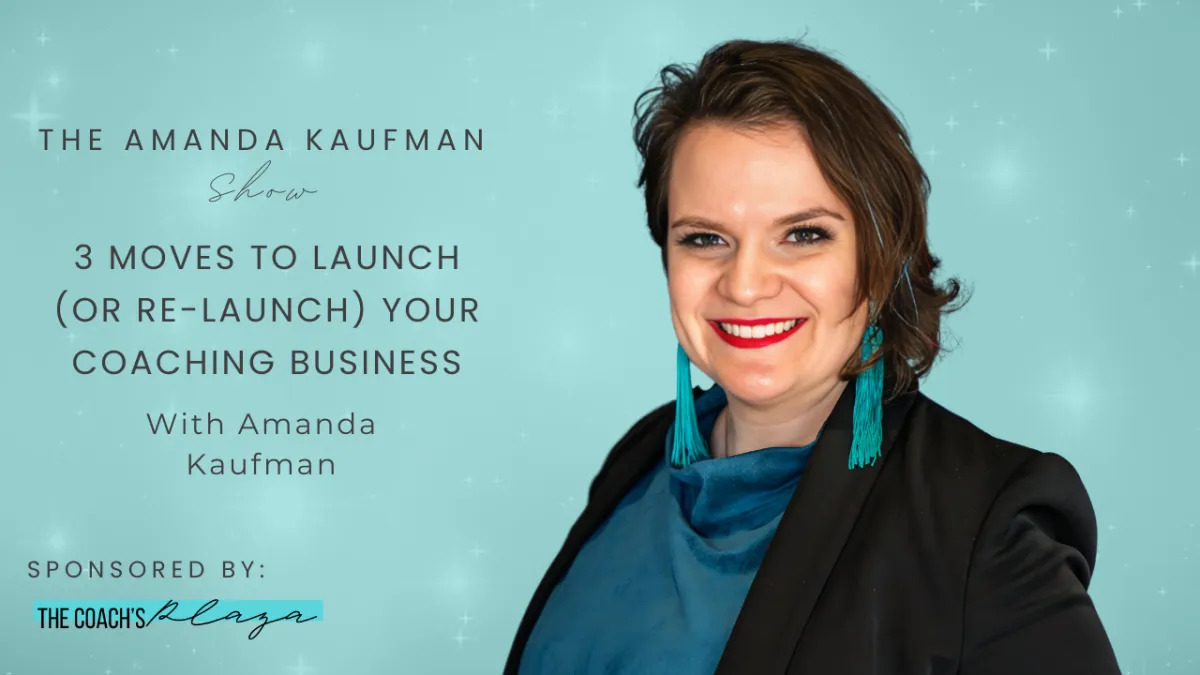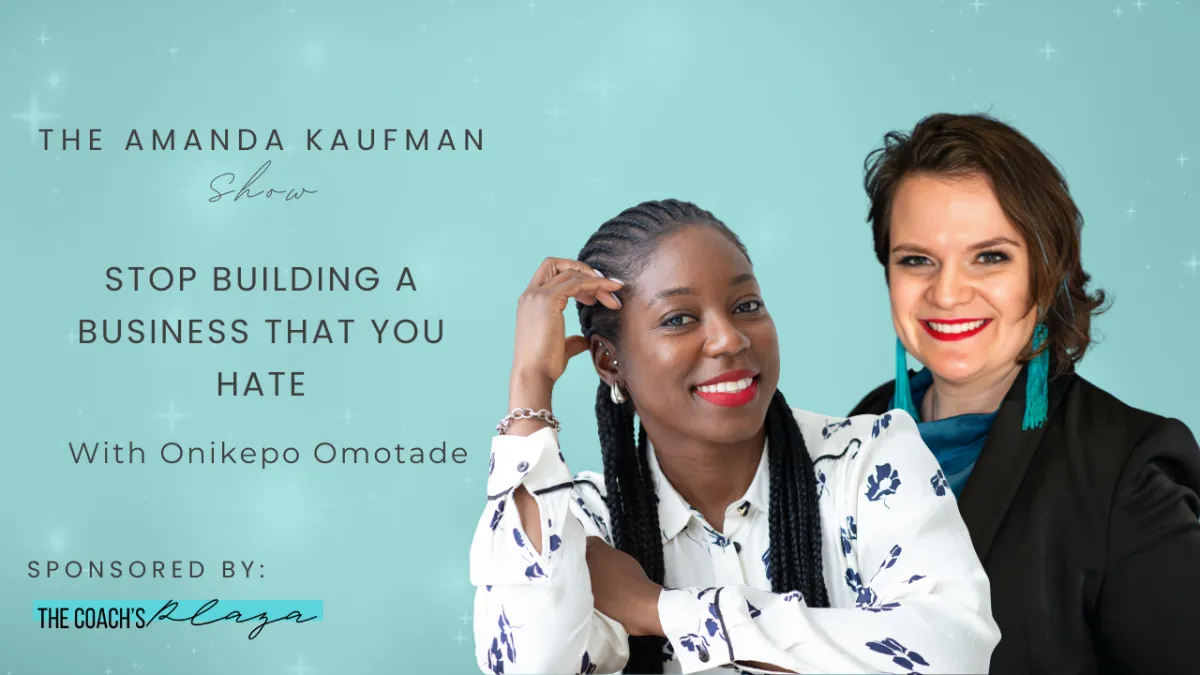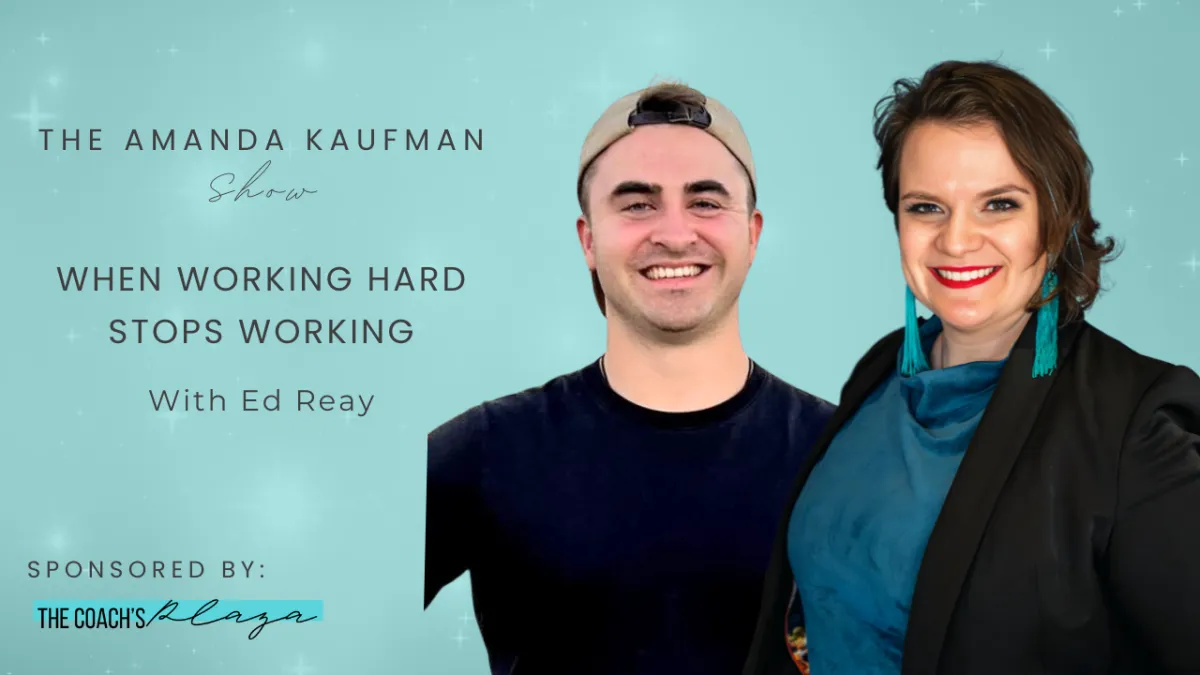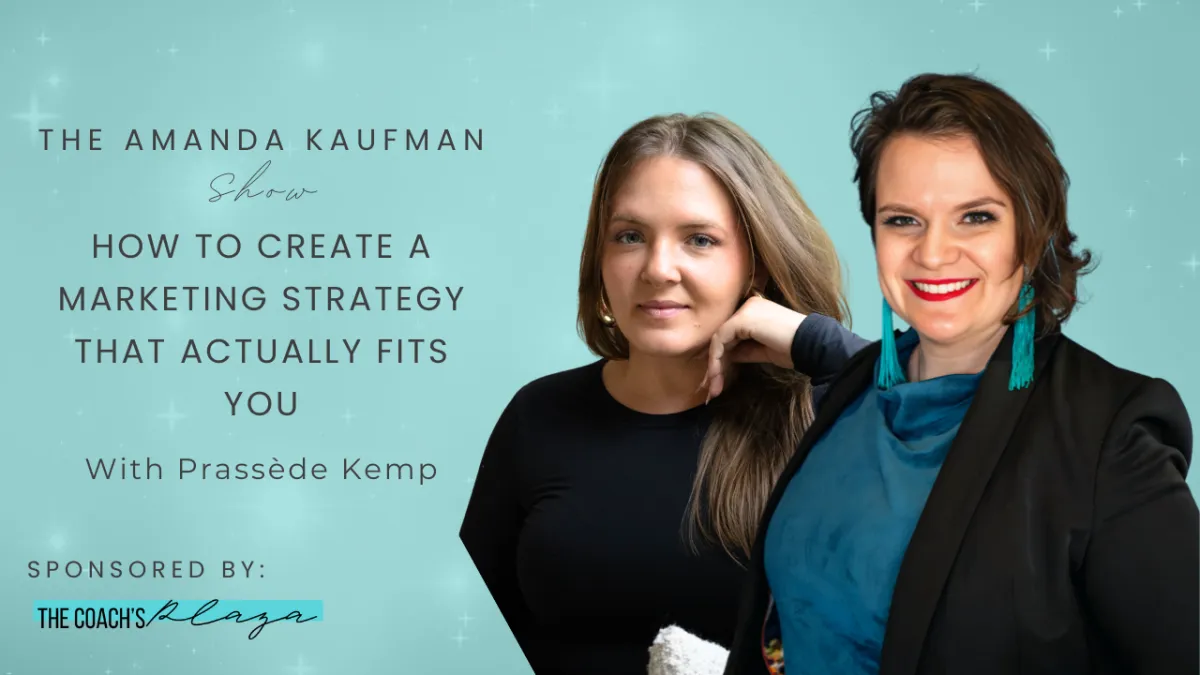The Amanda Kaufman Show
3 Moves To Launch (Or Re-Launch) Your Coaching Business
Published on: 28/01/2026
Three simple moves every coach needs to build clients consistently, even when life is messy, unpredictable, and far from perfect.
ProductivityBrandingMarketingsalescoachingMindset
Stop Building a Business That You Hate
Published on: 26/01/2026
Why chasing income without alignment leads to burnout, how side hustles steal freedom, and what it takes to build a business you actually enjoy today
ProductivityBrandingMarketingsalescoachingMindset
When Working Hard Stops Working
Published on: 23/01/2026
Why working harder stops producing results, how environment drives growth, and what to change when effort, strategy, and discipline are no longer enough.
ProductivityBrandingMarketingsalescoachingMindset
How to Create a Marketing Strategy That Actually Fits You
Published on: 21/01/2026
Why most marketing advice fails business owners and how to build a strategy that fits your energy, communication style, and life so it actually works.
ProductivityBrandingMarketingsalescoachingMindset
